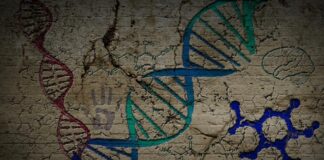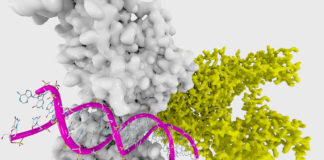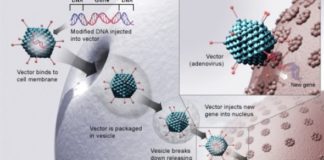Tag: Genetics
The Failure of “Spit For Science”: No Genetic or Neurological Pathways...
Despite finding no meaningful correlation between genes and substance use, high-profile geneticists misleadingly conveyed optimistic results.
Searching for the “Psychiatric Yeti”: Schizophrenia Is Not Genetic
After decades of study, billions of dollars spent, and thousands of studies conducted, the failure to identify any genes for schizophrenia should definitively put to rest the notion that schizophrenia is a genetic disorder, according to E. Fuller Torrey.
“Hidden Valley Road” and Schizophrenia: Do Genes Tell the Story?
The “genetics of mental disorders” story told in Kolker's "Hidden Valley Road" involves omission and misrepresentation of genetic research.
The Schizophrenia Genetics Illusion—A Century of Failure and Hype
This is the schizophrenia game. It has been played for over a century, and it’s time to stop.
Left-Wing Behavioral Genetics? A Closer Look at the Genetic Evidence in...
Behavioral genetic “discoveries” are a mirage, a house of cards that ignores contradictory evidence from countless real-world examples and research findings from other fields, that collapses under serious critical analysis.
Behavioural Geneticist Robert Plomin: “There Are No Disorders, There Are Just...
It is encouraging to hear leading scientists such as Plomin acknowledge that psychiatric diagnoses are fundamentally arbitrary and that the idea of a “cure” does not make sense with regards to psychological issues.
Kicking Over a Straw Woman
The Galvin family is the quintessential example of "genetic" schizophrenia. But their history of sexual abuse, violence, and trauma provides a clearer and simpler explanation.
Three Recent Genetics Books and Twin Studies’ Indefensible “Equal Environment Assumption”
Although Mitchell and Murray cited twin studies as the main source of evidence in support of their claims, these studies are based on a long-controversial assumption which they were unable to defend in their books, or on Twitter.
The Persistent, Misdirected Search for Causes of Trauma-based Suffering
In the United States and other countries that have a military, there is often a great deal of talk about supporting veterans, but way too often, research aimed at learning what will be helpful is misguided and can even be harmful. The same applies to nonveterans who have been through traumatic experiences. Two new studies exemplify such wrongheaded approaches.
Got a Gene for That? The Latest from the Chronicles of...
Among the latest examples of profiteering from the gene fad, there is now an app to determine your personal level of gayness, and researchers claim to have finally found real biomarkers to diagnose schizophrenia through a simple hair sample! Make no mistake: this is about the religion of scientism, not about science.
How Biotechologies Preserve the Idea of the Disordered Brain
Social scientists explore how psychiatry’s use of biotechnology is being used to reinvent and secure the idea of the disordered brain
Is Curing Patients a Sustainable Business Model?
From CNBC: A recent report by Goldman Sachs analysts questions whether curing patients, as opposed to providing them with chronic therapies, could pose a financial...
Debunking The Latest Gene Study
The researchers suggest that their finding implies a common genetic cause behind five different “disorders.” This is big news! If true, it validates the biomedical view of mental “illness” and suggests that future medical treatments could “cure” these conditions. However, that grand conclusion is not supported by the data.
Direct-to-Consumer Genetic Testing is Often Wrong
Direct-to-consumer (DTC) genetic testing has an “alarmingly high” 40% false-positive rate.
Large Study Finds Epigenetic Changes Associated with Trauma Explained by Smoking
A new study suggests that epigenetic changes that have been associated with trauma may actually be due to environmental toxins.
Dr. Jay Joseph: Why Schizophrenia Genetic Research is Running on Empty
Dr Jay Joseph discusses the evidence that psychiatry puts forward in support of the claim that mental disorders have an important genetic basis and the reasons why psychiatry is still searching after many decades of failed attempts.
Has the Era of Gene Therapy Finally Arrived?
From Scientific American: The FDA has announced its approval of Kymriah, the first gene therapy in the U.S. However, gene therapy remains far from fulfilling...
Fixing Genes Won’t Fix Us
From The Boston Globe: Scientists' focus on biology and genetics research downplays the role of socioeconomic factors in causing distress and health problems.
"Science is threatening a new era of...
Researchers Question Link Between Genetics and Depression
A new study, published in the journal Molecular Psychiatry, found no link between genetics and the occurrence of depressive symptoms.
Big New Study Challenges a Genetic Link to Stress, Depression
From Psych Central: A new meta-analysis found no evidence for a previously reported connection between the serotonin gene, depression, and stress.
"For years, scientists have been trying...
Why the Hype Around Medical Genetics is a Public Enemy
From Aeon: Throughout history, scientists have made inflated promises about medical genetics, vowing that the field will prevent or cure all diseases. These hyperbolic and grandiose...
Personalized Medicine may Treat Rather Than Prevent Diseases
From The Conversation US: Although personalized medicine, which involves tailoring health care to each person's individual genetic makeup, has helped make progress in the treatment...
Why Upgrading Your Brain Could Make you Less Human
In this essay for Aeon, Michael Bess presents some of the ways future brain-enhancing technologies could be dehumanizing.
"But if we’re not careful, we ignore the...
Bipolar Diagnosis Linked to Childhood Adversity
With the ties between traumatic childhood experiences and mental health issues, should we continue to focus on biological approaches?
Psychologists Suggest Mental Health is Based on Environment
In a new review for Molecular Psychiatry, psychologists Elaine Fox and Chris Beevers examine the connection between mental health genetics and cognitive biases. “'If...

































